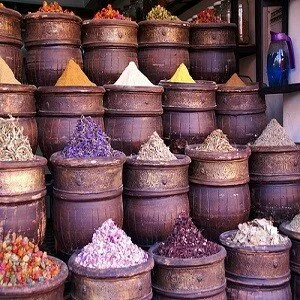1.Regular exercise helps in the treatment of high blood pressure.
Regular physical activity can reduce blood pressure in those with high blood pressure levels. Physical activity also reduces body fatness, which is associated with high blood pressure.
2.Apple promote the health of the heart
Apple contains plenty of soluble fibre; high intake of soluble fibre reduces absorption of cholesterol and bile acid (which are also rich in cholesterol) from the small intestines, thereby reducing blood cholesterol level. When soluble fibres are broken down by bacteria in the intestines, some fatty acids released are said to reduce the production of cholesterol by the liver. By lowering blood cholesterol, fibres help to reduce the risk of heart disease.
Apple also contains plenty of potassium which helps to prevent irregular heart beat and to reduce risk of stroke.
3.Nutritional minerals are vital to health
Nutritional minerals are vital to health. There are about twenty one (21) important nutritional minerals required by the body including Potassium, Sodium, Chloride, Calcium, Phosphorus, Sulphur and Magnesium
4.Harmattan increases risk of infection- experts
Experts say harmattan comes with dust that can trigger asthma and bronchitis attack as well as cause cold, cough, catarrh, and even meningitis.
Harmattan season is usually a dry and dusty period associated with low humidity. As a result, the weather is harsh to the hair as well as the skin. It lowers humidity, dissipates cloud cover, prevents rainfall formation and creates big clouds of dust or sand which can even result in violent dust storms or sandstorm. Experts have advised that we limit exposure to dust; by washing curtains, service air conditioners to avoid harmattan induce symptoms, wipe windows, fans with wet rags. People are advised to drink more water to prevent dehydration, heatstroke and do steam inhalation.
Studies have also shown that harmattan triggers sickle cell crises in those with sickle cell anemia, so patients with sickle cell should keep warm.
5.Meningitis spreads from person to person
The way meningitis spreads from person to person depends on the agent that caused the disease. If caused` by bacteria, it will spread through coughing, sneezing if close to the sick person or discharges can be blown as droplets later to other persons. It can also spread through kissing, sharing lip sticks/lip savers, tooth brushes etc.
If caused by a virus, it spreads by faecal (Stool) contamination of hands resulting from failure to wash hands thoroughly after using the toilet or changing baby diapers. There are other means of spread but these two are the most important.
6.Measles is the biggest killer among the vaccine preventable diseases.
Among the vaccine-preventable childhood killer diseases, measles is the worst; accounting for 50-60 percent of deaths from that class of diseases.
It affects about thirty (30) million persons annually with about half a million deaths, mostly in countries like Nigeria. The other vaccine preventable diseases are TB, polio, whooping cough, tetanus, meningitis and diphtheria. You can easily save your child from this disease and the others.
7.Pneumonia is an airborne disease
Pneumonia is an airborne disease, it spreads through droplets, dust containing the causative agents, and contact with articles contaminated by discharge from sneezing or coughing. Careless spitting on the ground can become a source of infection if the spit contains the agent. When dried up and becomes part of the dust, one can breathe it in following a wind. In a crowded place, one can also breathe in droplets from sneezing and/or coughing.




No Comments